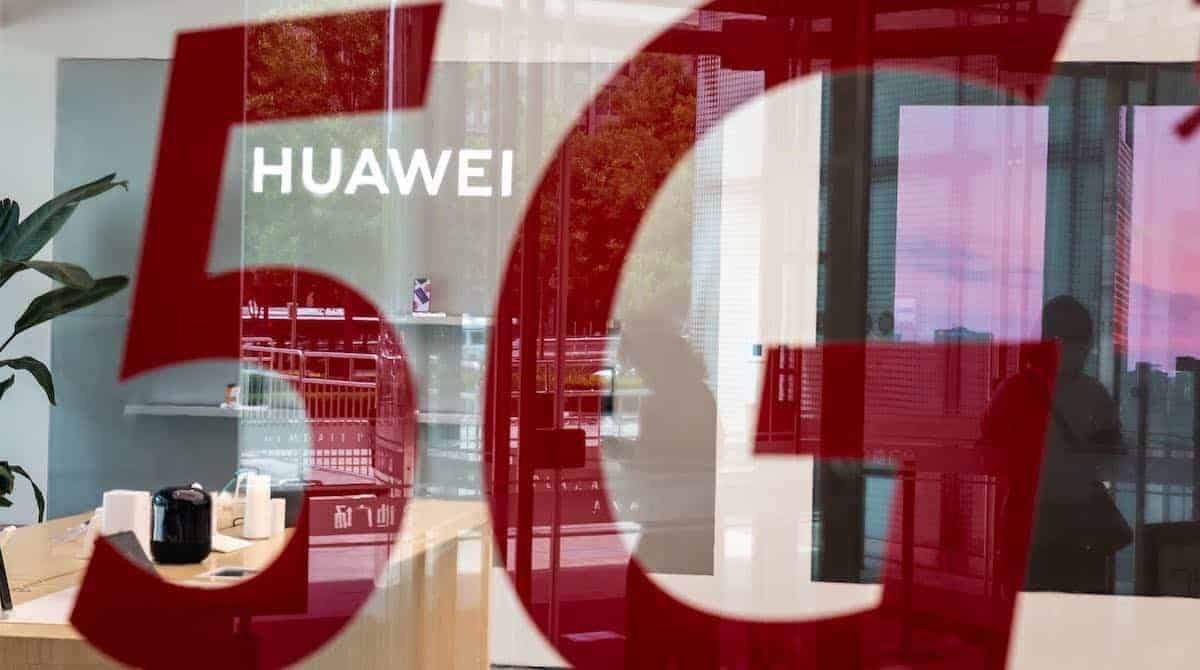Huawei launches media campaign amid UK ban fears

Huawei is launching an unprecedented media campaign in the United Kingdom amid a new security review.
The Chinese high-tech group has come under increased scrutiny and could now be frozen out from the UK’s 5G rollout.
In an open letter to the public published on its website on Monday, it pointed out its close ties to the country.
“For nearly 20 years, we’ve supplied the UK’s mobile and broadband companies with 3G and 4G. But some now question our role in helping Britain lead the way in 5G.”
To ram home the message, Huawei Vice-President Victor Zhang made it clear that the privately-owned company could be trusted.
“Huawei grew up in the UK … building the 3G and 4G networks we all use every day. [This] letter underlines Huawei’s ongoing commitment to improving connectivity for everyone in the UK,” he said on Huawei’s website.
Still, fears exist about the telecom giant’s close links to Beijing. The United States has expressed strong concerns that China could use Huawei’s networking systems for espionage or cyber-sabotage.
US President Donald Trump’s administration has even lobbied other countries to shun the group in their proposed 5G infrastructure after banning it at home.
‘Heavy regulation’
“There are concerns that Huawei’s 5G infrastructure could contain backdoors giving the Chinese government access to its inner workings and allowing Beijing to attack communications networks and public utilities,” Lindsay Maizland and Andrew Chatzky, of the Council on Foreign Relations, wrote in a commentary.
“The government has considerable sway over all Chinese private companies through heavy regulation, including the requirement that they establish Chinese Communist Party branches within them, and state-backed investment. Under President Xi Jinping, the lines between the public and the private have become even more blurred,” they said.
For the UK, the situation has become more complicated in the past few months as relations between London and Beijing rapidly deteriorate.
Friction surfaced over China’s handling of the Covid-19 outbreak, plans to bring in a new national security law in Hong Kong and the ongoing Huawei saga after originally giving the company the green light.
At the weekend, China’s Ambassador to the UK Liu Xiaoming was reported in The Sunday Times as telling business leaders that Beijing viewed the stand-off as “a litmus test of whether Britain is a true and faithful partner.”
His comments came after British Prime Minister Boris Johnson agreed to work with the UK’s “Five Eyes” intelligence allies, the US, Canada, Australia and New Zealand, to find an alternative to Huawei.
Media reports also claimed that Johnson’s government had reached out to South Korea’s Samsung and Japan’s NEC to replace the Chinese company. But that has yet to be confirmed.
In another political twist, GCHQ Director Jeremy Fleming played down the risks posed by a limited 5G rollout by Huawei to the “Five Eyes alliance.”
“Five Eyes isn’t an organization, it’s a partnership, it’s an alliance. It is, of course, the case that whilst we share basic principles … there are areas where, from time to time, our approaches differ,” he said.
“Those are not fundamentally undermining the alliance. Indeed, I think it’s the power of the alliance that, where we do differ, we can both understand why we’re taking those decisions, but also make sure that we continue to cooperate across the broader piece,” Fleming, the head of of the GCHQ spy agency, added in an interview recorded last month for a science festival in England.
Yet if Huawei is banned, there could be serious repercussions.
On Saturday, The Daily Telegraph in London reported that HSBC Chairman Mark Tucker had warned that the British-based bank could face reprisals, citing industry and political sources. HSBC has yet to comment on the article.
In the meantime, Huawei will continue its charm offensive. And like its global networks, that will probably run and run.
Photo: China's telecom giant Huawei has launched a 5G charm offensive in the United Kingdom. Photo: AFP / Nicolas Asfouri
Link: https://asiatimes.com/2020/06/huawei-launches-media-campaign-amid-uk-ban-fears/




